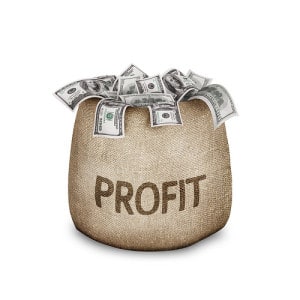It is surprising by the number of business owners who never have taken the time to determine if they are profitable at a basic level. There is money in the bank, so the assumption is that he or she must be doing OK.
Yet money in the bank and making a profit are two different things. So how does a business owner tell if he or she has a profitable business?
One time this difference appears is when it is time to pay taxes. The money in the bank may be inadequate to pay the tax bill.
Beyond that, owners must consider other financial items, such as whether the business can afford to:
• Pay the owner for his or her time spent working in the business
• Pay the owner for the time spent managing the business
• Pay the owner for the risk he or she is taking (or whether the owner is getting a return on his or her investment)
• Create a pool of funds to help maintain and replace the building and equipment
• Build a fund that will pay for growth and expansion if that is desired
While all of these items are beyond the basic profit definition, the business owner must consider them when determining profitability.
If your business is not even covering your costs, and you are completely tracking business income and expenses, it is easy to tell that your business must make changes to survive. It is harder, though, without good records, to determine if you are covering these other items that may influence whether you continue to operate the business.
But what about the other reasons a business owner has for starting and operating a business? Motivators can include filling a local community need, being able to spend time with family, the joy of being one’s own boss, the ability to do something the owner wants or have a lifestyle he or she desires. Perhaps the owner wants to begin bringing other family members into the business as an introduction to entrepreneurship and even as a means of transitioning a family business to the next generation.
Those are important for the owner to consider as well. While they don’t pay the bills, they are reasons why an owner might take a slightly smaller salary or discount his or her return on the risk/reward ratio.
Thus profit becomes only one distinguishing factor when considering business continuity. Certainly, other financial aspects must be factored in, but the more subjective aspects also must be a part of the equation.
As your business looks toward the future, take a complete look at the financial picture and be clear about what else the business is providing you and others.
Glenn Muske is the Rural and Agribusiness Enterprise Development Specialist at the North Dakota State University Extension Service – Center for Community Vitality. Follow Glenn on Twitter: @gmuske
- About the Author
- Latest by this Author
Glenn Muske is an independent expert on rural small business, working as GM Consulting – Your partner in achieving small business success. He provides consulting, and writes articles for county extension agents and newspapers across North Dakota. Previously, he was the Rural and Agribusiness Enterprise Development Specialist at the North Dakota State University Extension Service – Center for Community Vitality.











